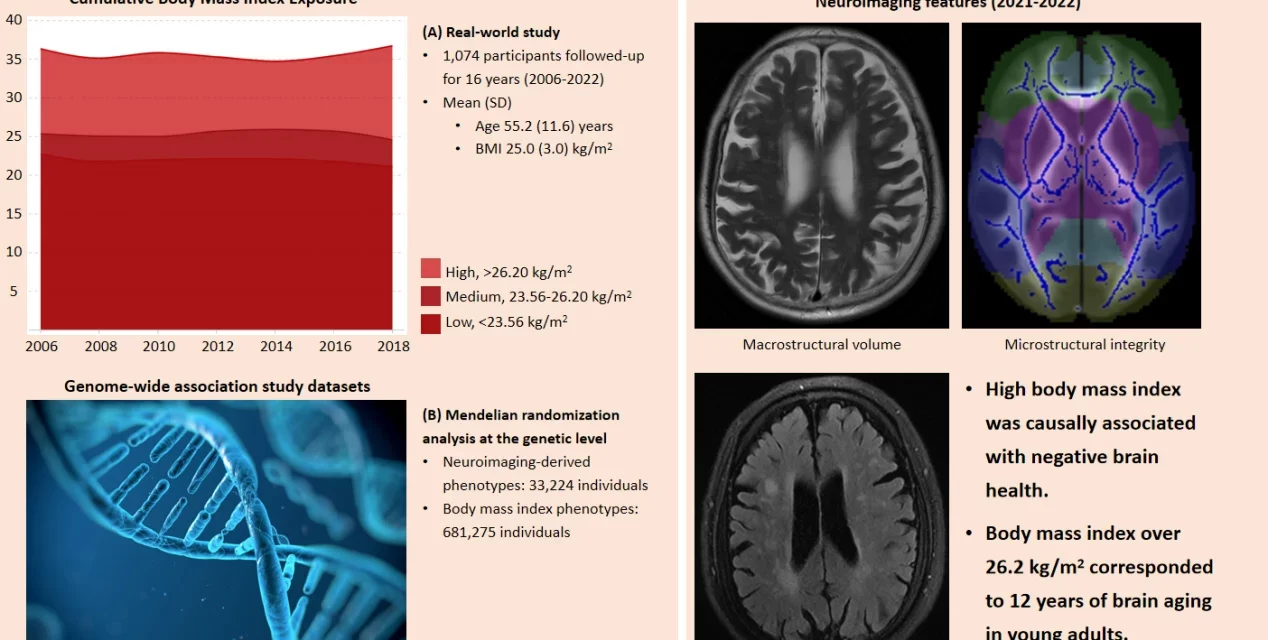A groundbreaking study published in Health Data Science sheds light on the profound effects of cumulative body mass index (BMI) on brain health across different age demographics. Led by Associate Professor Han Lv from Beijing Friendship Hospital, Capital Medical University, the research underscores that elevated BMI levels are closely associated with detrimental changes in brain structure and integrity.
Spanning over 16 years, the study delved into a population-based cohort ranging from 25 to 83 years old. It meticulously examined neuroimaging data to unveil significant correlations between high BMI and adverse brain health outcomes. The findings revealed that individuals with higher BMI exhibited reduced brain volume, heightened white matter lesions, and compromised microstructural integrity, particularly pronounced in younger adults under 45 and older adults above 60 years of age.
Associate Professor Han Lv highlighted the gravity of these findings, noting, “High cumulative BMI is detrimental to brain health, resembling approximately 12 years of accelerated brain aging in younger adults.” The study recommended maintaining a BMI below 26.2 kg/m² to mitigate these risks and preserve optimal brain function over the long term.
Utilizing advanced statistical models, including generalized linear and Mendelian randomization analyses with genetic data, the research established a causal link between BMI and specific neuroimaging markers. This approach affirmed that elevated BMI causally contributes to reduced gray matter volume and altered white matter integrity, emphasizing the critical role of weight management in maintaining brain health.
“These insights underscore the urgency for public health initiatives aimed at BMI control throughout adulthood,” concluded Associate Professor Han Lv. “Future studies should focus on longitudinal neuroimaging data to further elucidate these associations and inform preventive strategies.”
The study, titled “Association between Body Mass Index and Brain Health in Adults: A 16-Year Population-Based Cohort and Mendelian Randomization Study,” offers a pivotal contribution to understanding how BMI impacts neurological outcomes and advocates for proactive measures to safeguard brain health.
Reference: Lv H, et al. (2024) Association between Body Mass Index and Brain Health in Adults: A 16-Year Population-Based Cohort and Mendelian Randomization Study. Health Data Science. DOI: 10.34133/hds.0087










